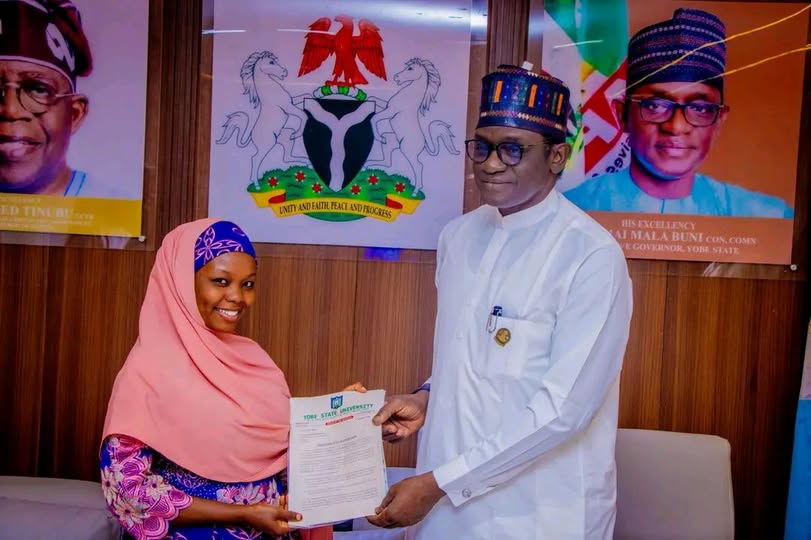In the high-stakes world of engineering, where miscalculations can upend economies and where progress often depends on precision under pressure, few names command as much quiet respect as Tokunbo Olugbemi. On May 26, 2025, that respect was made official when he was awarded the coveted Fellowship of the National Institute of Professional Engineers and Scientists (NIPES). It was a moment of national recognition, but also one that spoke volumes about a career built not on prestige, but on persistence, performance, and purpose.
“I didn’t pursue engineering for titles,” Olugbemi says. “I pursued it because I wanted to build things that last, solve problems that matter, and create systems that serve people long after I’ve moved on.”
Those aren’t just words. They are the bedrock of a life spent turning blueprints into offshore platforms, schematics into subsea flowlines, and risk assessments into real-world safety outcomes. From Chevron’s offshore platforms to onshore fabrication yards in Nigeria’s oil-rich delta, Olugbemi has made a career out of doing the hard work, the complex work, the work that rarely makes headlines—but always makes a difference.
Graduating with a degree in Chemical Engineering from Obafemi Awolowo University in 1995, and later earning a Master’s in Chemical Engineering and an MBA from the University of Lagos, he laid a firm academic foundation for what would become an expansive, multidimensional career. Today, he serves as Lead Offshore Construction Engineer at Chevron Nigeria Limited, where he orchestrates some of the most challenging construction projects in West Africa’s energy sector.
But it’s not just his technical resume that earned him the NIPES Fellowship. It’s his ability to bridge worlds—between the boardroom and the pipeline, between strategic foresight and granular detail. In an industry often compartmentalized into planners, builders, and analysts, Olugbemi stands out because he is all three. He not only manages offshore construction operations but also contributes to academic journals, mentors young engineers, and leads training initiatives recognized by national regulatory bodies.
“I see myself as a translator,” he says. “I translate between the languages of theory and fieldwork, between safety protocols and local realities, between emerging technologies and existing infrastructure.”
The recognition from NIPES is a reflection of this multidimensional impact. The Fellowship is reserved for those who have made outstanding, original contributions to the field of engineering, and who exhibit not just excellence, but leadership. In Olugbemi’s case, his leadership has spanned across Chevron’s multi-billion-naira construction projects and into the classrooms and publications that shape the next generation of engineers.
His fieldwork reads like a timeline of some of Nigeria’s most critical energy interventions: repairing the Delta South 20-inch subsea flare line in 2024, rehabilitating the Meren Jacket 52 complex gas line, and restoring multiple flowlines in Escravos ahead of schedule and without incident. Each of these undertakings was fraught with technical complexity, requiring not only engineering know-how but also calm decision-making under pressure.
And calm is something Olugbemi carries naturally. “Panic doesn’t fix pipelines,” he says with a wry smile. “It’s discipline, preparation, and teamwork that gets us through.”
That discipline has earned him more than 10 awards from top-tier academic journals in the last two years alone. He is not just a contributor, but an editor and reviewer for publications ranging from the Gulf Journal of Engineering & Technology to the Engineering Science & Technology Journal. It’s a role he takes seriously.
“When you review other people’s work, you sharpen your own thinking,” he explains. “It keeps you updated, but it also humbles you. The field is always evolving, and we must evolve with it.”
Olugbemi has done just that. In 2024, he completed training in Python and Pandas, expanding his toolkit to include data science and analytics—an increasingly critical edge in today’s engineering ecosystem. He has also attended numerous international training programs, from advanced project risk management to heavy lifting and transportation techniques, many of which were held in the United States and Nigeria.
But if there’s one theme that runs through Olugbemi’s story, it’s mentorship. He returns to the subject often, his voice warm and insistent. “The oil and gas industry is aging,” he says. “We need new blood. But young engineers won’t thrive unless we give them room, guidance, and belief.”
He walks that talk. As part of his leadership role at Chevron, he mentors construction reps, project engineers, and even safety officers, ensuring they understand not just their tasks, but the bigger picture. He introduces them to project drawings, teaches them to read method statements, and emphasizes the importance of always checking that the latest revisions are being followed.
“I’ve mentored people who now run their own teams,” he says. “That, to me, is a bigger achievement than any plaque on the wall.”
That humility runs deep. Despite his extensive list of achievements—including presenting a success case at the FE Conference in Houston and leading fabrication and installation efforts recognized by the Nigerian Content Development and Monitoring Board—he insists that the best reward is seeing a project complete safely.
“Some of my proudest days were the quietest,” he recalls. “No incidents, no injuries, just a team executing perfectly. That’s what excellence really looks like.”
Still, recognition matters. The NIPES Fellowship puts Olugbemi on a national platform, enabling him to help shape regulatory standards, participate in policy development, and offer his expertise in national forums. It’s not just an honor; it’s a responsibility he embraces.
“I see it as a call to serve beyond the site,” he says. “We need more engineers in policy rooms, in standards bodies, and in education reform. We can’t complain about the state of infrastructure if we’re not part of building the systems behind it.”
That systems-thinking mindset has long defined Olugbemi’s approach. From leading offshore repairs and shutdowns to developing reliability-based asset management strategies, he has always viewed engineering as a blend of art, science, and stewardship.
His work has direct economic implications. By restoring production pipelines and upgrading critical infrastructure, he has helped Chevron—and by extension Nigeria—avoid costly downtime and environmental damage. The projects he has led contribute to national energy security and generate ripple effects across supply chains, local employment, and foreign investment.
But for Olugbemi, the real value lies in what’s left behind. “A good engineer doesn’t just fix what’s broken,” he says. “He creates a system that prevents failure in the first place. That’s where the true value is.”
Looking forward, he remains focused on the intersection of emerging technologies, local content development, and environmental responsibility. With sustainability becoming a watchword across the industry, he is already reviewing literature and participating in research related to green construction, carbon mitigation, and artificial intelligence in predictive maintenance.
He is also committed to pushing the boundaries of engineering education. As an editor and reviewer, he has championed work from up-and-coming researchers across Africa, offering feedback that strengthens the region’s intellectual output and helps bridge the gap between field realities and academic discourse.
“I want young engineers to know that Africa has something to say in the global conversation,” he says. “We’ve got the experience, the challenges, and the ingenuity. What we need is more platforms—and more people willing to create them.”
In Tokunbo Olugbemi, Nigeria doesn’t just have an engineer. It has a strategist, a mentor, a builder of systems and people alike. His Fellowship is a milestone, but it is also a message—that dedication, quiet leadership, and technical mastery still matter in a world obsessed with quick wins and loud headlines.
As the country grapples with its infrastructure challenges and seeks to modernize its oil and gas sector, leaders like Olugbemi offer a template for what is possible when expertise meets integrity, when experience meets foresight. With his name now permanently inscribed among the Fellows of NIPES and his legacy growing with every successful project, Tokunbo Olugbemi continues to show what it means to build not just platforms, but a profession—and a future.






